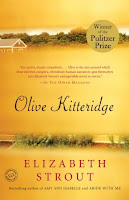We watched a documentary over the weekend about plastic bags. For the most part, I’d like to think I’m a responsible shopper — I tote around a canvas bag wherever I go, we use those giant recycled plastic ones at the grocery store, and we attempt to recycle everything we possibly can. And yet, the facts from that one-hour doc were so upsetting that I’ve been thinking about it for days. Canadians use 6 billion plastic bags a year, and less than 1% of these are recycled or reused. The rest go into landfills. And this got me thinking about My Plastic Life, how much of the stuff I use on a daily basis and make a list to see where I can cut back and/or down:
1. Plastic bottles for shampoo, conditioner and body wash. Last year Zesty took me to Costco around this time and I bought a MASSIVE bottle of shampoo that I used for about ten straight months. Considering that’s one bottle versus many smaller bottles, maybe I’ll have to see if I can tag along again.
2. Plastic water bottle: this is already reusable, so I think I’m okay there.
3. Plastic wrap for all of the fruit & veggies from the grocery store, the farmer’s market, and from Whole Foods. Everything I pack a lunch in is plastic, but reusable, so that’s something, but still — I haven’t even gotten on my bike yet and I’ve already used plastic every step of the way.
4. Water bottles and plastic bags all strewn on the side of the road (when I started this post the garbage strike hadn’t even begun; now it’s even worse). None of these are directly my fault but I’d never really LOOKED before. Now I notice them everywhere.
5. Plastic hair clip.
6. I’m sure there’s plastic in my keyboard. What else is it made out of?
7. My phone too.
8. Plastic water glasses and container (both made in China) for drinking water at work. Again, I use these everyday and have stopped buying water bottles altogether. Do I get a pat on the back for that at least?
9. Whew. Wax paper for my bagel and a brown paper bag. Both of which can go in my green bin.
10. Plastic pens.
11. Wait. My glasses are also plastic.
12. And so on…
I’m not even at 11 AM and I’ve already used plastic in every single inch of my daily life. Where do I start? And how do I make a change? The #1 thing I’m going to do is start taking containers to the farmer’s market instead of just bringing my cloth shopping bags. But that’s such a small change — and I’m afraid it simply won’t make any difference whatsoever.
Anyone else have suggestions? How do you work on cutting excess plastic out of your life?






